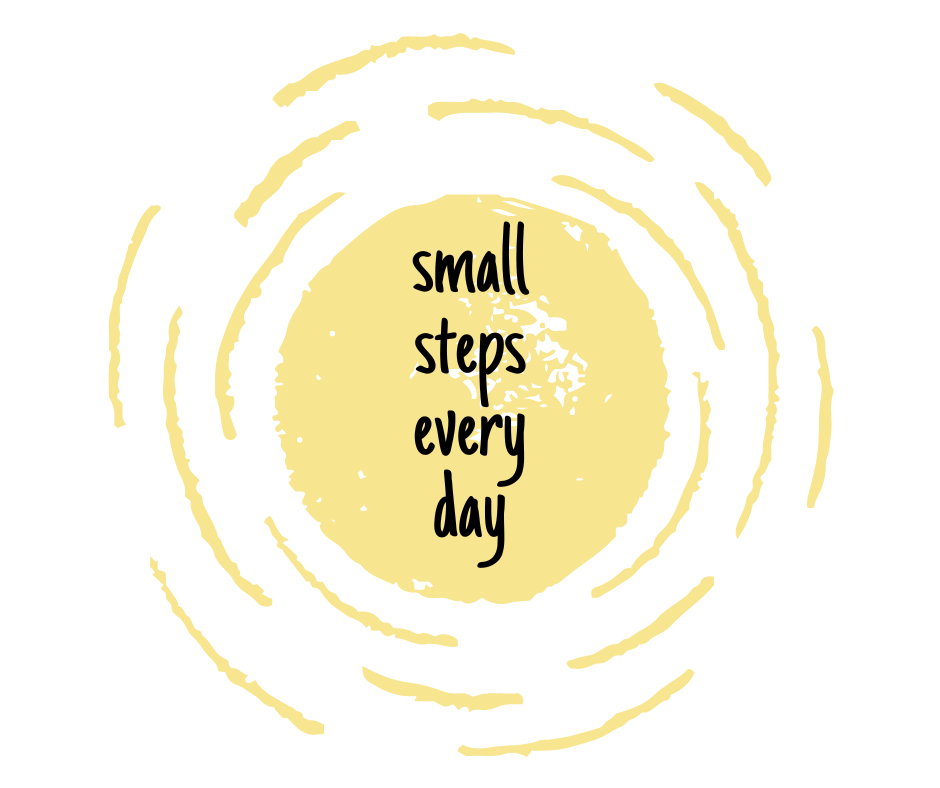Getting into the habit of daily exercise is something many of us strive for, but it can be challenging to maintain. We know that exercise is essential for our physical and mental health, yet it can be challenging to find the time and motivation to make it a regular part of our routine. However, BJ Fogg’s book, Tiny Habits, offers an innovative and practical approach to habit formation that can help you get started and keep going.
Start Small
One of the most significant barriers to developing an exercise habit is the idea that we need to do a lot to see results. However, Fogg suggests that starting small is the key to building lasting habits. Rather than committing to an hour-long workout each day, start with a small habit. This could be something a small as a single push-up or stretching for 30 seconds. By starting small, you’ll be more likely to stick with the habit and build momentum over time.
Identify Triggers
According to Fogg, habits are formed through a process of triggers, actions, and rewards. To get into the habit of daily exercise, start by identifying triggers that naturally occur in your daily routine. For example, you might choose to do a few squats every time you brush your teeth or take a short walk after lunch. By linking exercise to something you already do regularly, you’ll be more likely to make it a habit.
Anchor the Habit
Anchoring the habit is about finding a specific place or time to do the behavior consistently. For example, if you decide to do a few push-ups every morning, make sure to anchor the habit to a specific time, such as right after you wake up. By anchoring the habit, you’ll create a reliable cue that triggers the behavior. Over time, this cue will become associated with the behavior, making it easier to do automatically.
Celebrate Successes
Celebrating successes is a key part of Fogg’s approach to habit formation. Each time you successfully complete your small exercise habit, take a moment to celebrate your accomplishment. This could be as simple as saying “good job” to yourself or doing a small victory dance. Celebrating successes helps to reinforce the behavior and increases the likelihood that you’ll repeat it.
Adjust Habits as Needed
As you begin to develop your daily exercise habit, be open to adjusting it as needed. If you find that your current habit isn’t working, don’t be afraid to try something different. The goal is to find a habit that is both sustainable and enjoyable. For example, if you find that doing push-ups is too challenging, you might switch to a different exercise or decrease the number of repetitions.
Use Positive Reinforcement
Positive reinforcement is a powerful tool for habit formation. Each time you successfully complete your exercise habit, give yourself a small reward, such as a piece of fruit or a few minutes of relaxation time. By using positive reinforcement, you’ll be more likely to stick with the habit over time. However, it’s important to choose rewards that align with your overall health goals, such as eating healthy foods or doing something enjoyable that doesn’t conflict with your exercise routine.
Stay Consistent
Consistency is key when it comes to habit formation. To get into the habit of daily exercise, commit to doing your small exercise habit every day, even if it’s just for a few seconds. Over time, these small habits will add up, and you’ll be well on your way to making exercise a regular part of your routine. However, it’s essential to be patient and not give up if you miss a day or two. Just get back on track as soon as possible.
Make it Enjoyable
Fogg emphasizes the importance of making habits enjoyable. If you don’t enjoy the exercise you’re doing, it’s unlikely that you’ll stick with it in the long run. To make exercise more enjoyable, find an activity that you enjoy doing or that you find interesting. This could be something as simple as taking a walk in nature or trying a new yoga class. By choosing an exercise that you enjoy, you’ll be more likely to stick with it over time.
Find Support
Finally, finding support can be a powerful tool for habit formation. Joining a fitness group or working out with a friend can provide accountability and motivation, making it easier to stick with your exercise habit. You can also use social media or a habit-tracking app to document your progress and share it with others. By finding support, you’ll be more likely to stay committed to your daily exercise habit.
Final Words
Developing a daily exercise habit can be difficult, but it’s achievable with the right strategy. Start by taking small steps, identifying cues, anchoring the habit, and celebrating progress. Use positive reinforcement, remain consistent, find joy in the process, and seek support from others. With these tenets, you can establish a lasting exercise habit that promotes both physical and mental health. Why wait? Begin your journey today!

